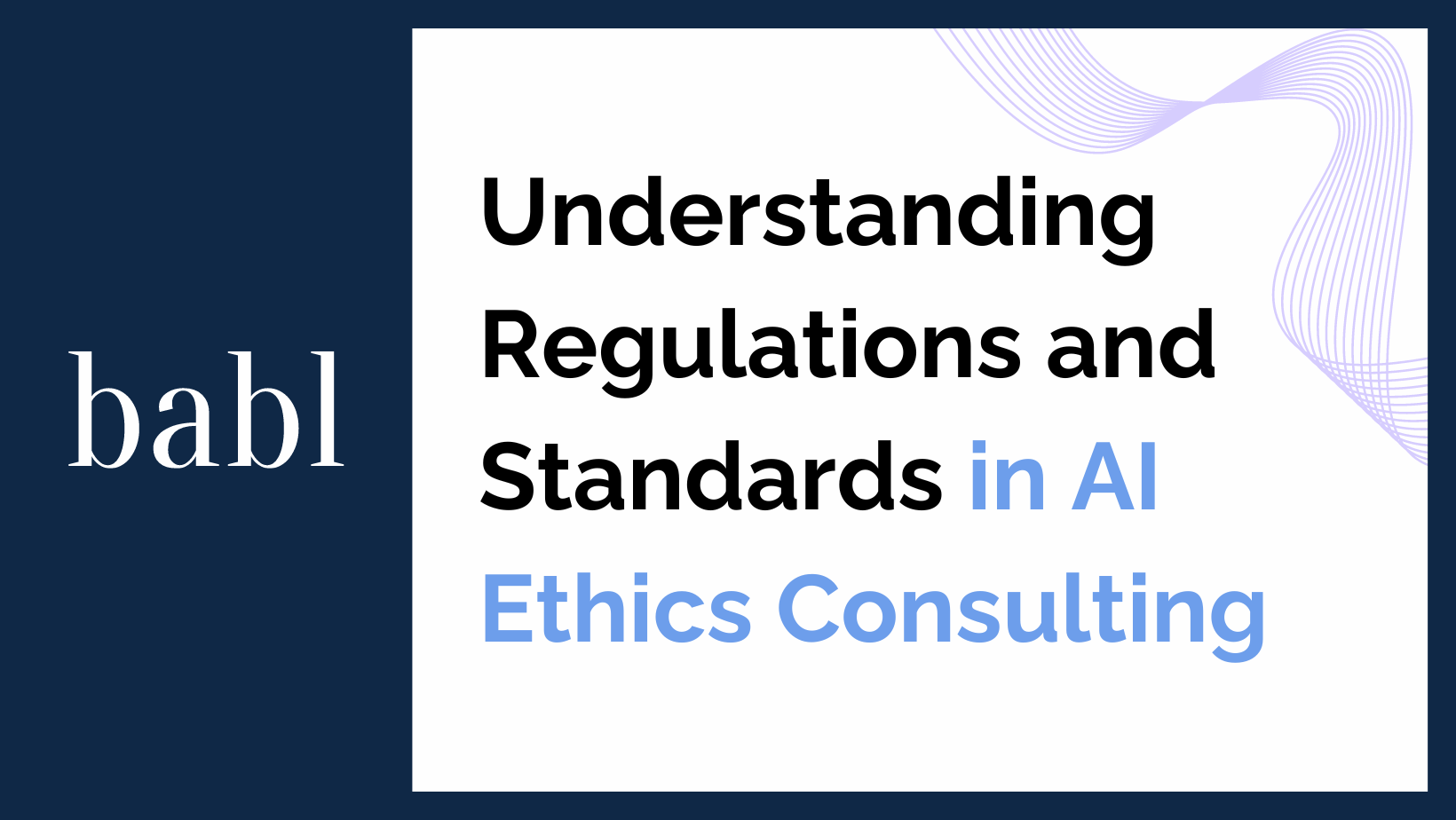Understanding Regulations and Standards in AI Ethics Consulting
As AI technologies continue to advance and permeate various industries, the need for ethical guidelines, regulations, and standards to govern the development and deployment of AI systems becomes increasingly critical. AI ethics consultants play a vital role in ensuring that organizations adhere to these regulations and standards to promote responsible and ethical AI practices.
A Rapidly Evolving Regulatory Landscape
Around the world, governments and regulators are crafting new policies to address AI’s ethical and social impacts. These rules vary by country and region, making it vital for consultants to stay informed.
Whether advising on the EU AI Act, New York City’s AEDT law, or the U.S. executive orders, consultants must help organizations meet legal requirements and avoid compliance pitfalls. Understanding these laws is not just about risk avoidance—it’s about aligning AI systems with values like fairness, safety, and human rights.
Aligning with Global Standards and Best Practices
AI ethics consultants must also guide clients using established standards. Frameworks from organizations like ISO and COSO provide tested models for risk management, accountability, and internal controls.
By following these industry benchmarks, consultants help companies build trust, demonstrate compliance, and implement governance structures that support long-term responsible innovation.
Risk Assessments Are Foundational
AI introduces unique challenges—algorithmic bias, data privacy issues, lack of transparency, and unintended consequences. That’s why risk assessments are a cornerstone of effective AI ethics consulting.
Consultants must evaluate each AI use case, identify ethical risks, and recommend controls to reduce harm. These assessments aren’t just a box to check—they’re key to building responsible AI ecosystems.
The Overlooked Need: Specialized Insurance
One often-forgotten area of AI ethics consulting is insurance. Standard professional liability policies often fall short when it comes to covering the risks of AI audits.
AI consultants need tailored insurance that accounts for:
-
Technical failures
-
Algorithmic bias
-
Regulatory violations
-
Ethical oversights
With proper coverage, consultants can reduce exposure to lawsuits, protect clients, and operate with greater confidence.
Conclusion: Staying Ahead of AI Regulation
To stay effective in this fast-changing landscape, AI ethics consultants must:
-
Stay current with global laws and regulations
-
Apply standards like ISO and COSO
-
Conduct robust, forward-looking risk assessments
-
Secure insurance built for AI-related liability
These practices promote transparency, build trust, and ensure organizations deploy AI responsibly and ethically.
Need Help?
As more and more regulations are released, you will want to have a competitive edge. Don’t hesitate to reach out to BABL AI, their team of Audit Experts can provide valuable insights on implementing AI while answering your questions and concerns.





